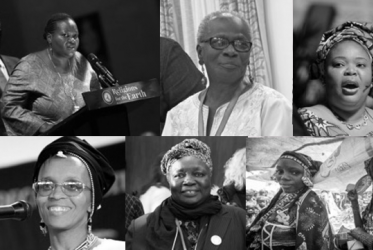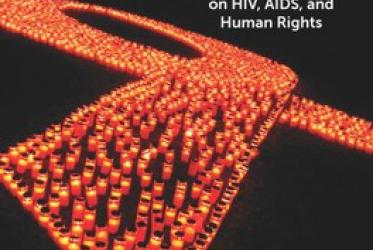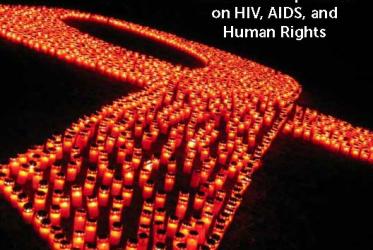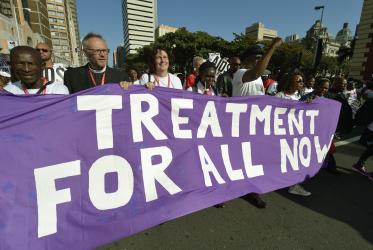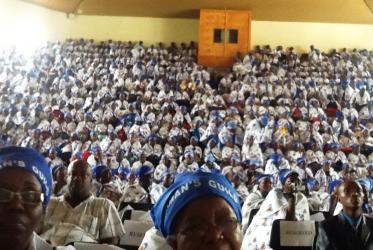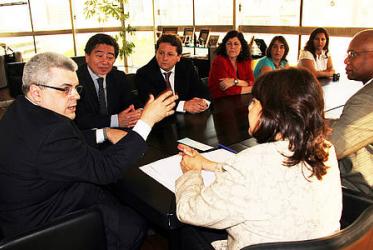Displaying 1 - 20 of 30
WCC mourns passing of Hendrew Lusey-Gekawaku
23 October 2020
Thursdays in Black: sharing support, transforming lives
21 February 2019
#WCC70: A prayer about health and healing
20 July 2018
WCC book featured in UN discussion on gender, religions and health
16 September 2016
Keeping the Faith in Development: Gender, Religion and Health
20 September 2016
Salvation Army Auditorium, New York City, United States
Towards accessible and inclusive societies and churches in Latin America
15 September 2014
Thursdays in Black: zero tolerance for violence against women
11 October 2013
Conference in Kenya addresses women’s concerns
09 September 2013
Assembly theme explored in new issue of The Ecumenical Review
18 October 2012
Faith communities promote “safe spaces” to discuss health issues
19 January 2012

